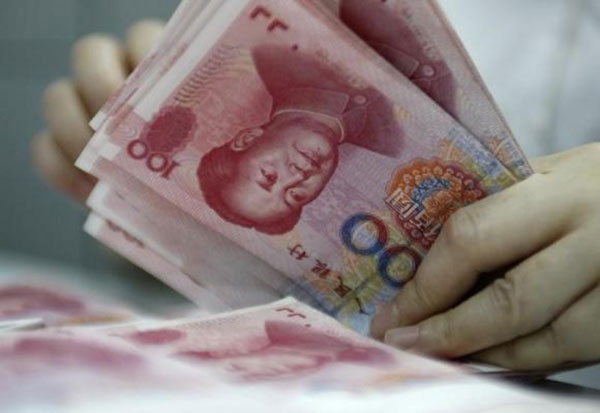|
 |
|
An employee counts yuan banknotes at a bank in Huaibei, Anhui province.[Photo/Agencies] |
Recently, the International Monetary Fund's staff and its chief Christine Lagarde suggested that the yuan should join the basket of international reserve currencies (the Special Drawing Rights, or SDR). The inclusion is expected to be approved at the IMF board meeting on Nov 30.
It would make the yuan the first currency of an emerging economy to be included in the basket. And it could unleash three waves of capital inflows into the Chinese currency.
In the first wave, the yuan's inclusion would cause a re-weighting of the SDR basket, which is valued at $280 billion. Currently, it is dominated by the US dollar (42 percent) and the euro (38 percent), followed by the British pound (11 percent), and Japanese yen (9 percent).
The initial weight of the yuan is likely to be about 10-14 percent - as reflected by China's share in global exports (13 percent), foreign exchange reserves (30 percent) and the use of its currency in global capital flows (1-3 percent). That could mean a shift of $40 billion into the yuan's assets starting in October 2016, probably gradually over half a decade.
As long as the deceleration of China's economic growth does not result in a hard landing and financial reforms continue, the IMF endorsement could trigger another wave of larger capital inflows by central banks, reserve managers and sovereign wealth funds.
Today, the allocated part of the global foreign exchange reserves - which the IMF calls the Currency Composition of Official Foreign Exchange Reserves, or COFER - amounts to $6.3 trillion. The US dollar still accounts for nearly two-thirds of the total, against a fourth by the euro, while the pound and the yen are smaller (less than 5 percent each). Assuming that China's current share of global reserves is about 1 percent, the IMF's decision could cause a significant capital inflow (4 percent) into the yuan assets, which would translate to some $350 billion by 2020.

I’ve lived in China for quite a considerable time including my graduate school years, travelled and worked in a few cities and still choose my destination taking into consideration the density of smog or PM2.5 particulate matter in the region.